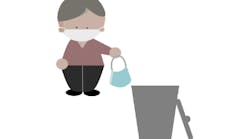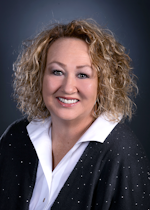Myth busters for dental assistants: Reusing disposable items
It’s OK to reuse disposable items. The CDC has said that we can reuse masks, so it’s not a big deal! Right?
Wrong!
Reusing disposable items, one-time use items, or single-patient-use items is a huge no-no! Yes, the Centers for Disease Control and Prevention has relaxed some restrictions on masks and other personal protective equipment that has become hard to locate for many offices, and impossible to acquire for others. That does not mean that we can go crazy and reuse items that clearly should not be reused.
One of the items I’ve seen offices reuse is nitrous oxide nasal hoods. I mean, really? These are either disposable or autoclavable, there’s no in-between. I’ve overheard assistants say that they put disposable nasal hoods in a baggie and label them with the patient’s name so that they can reuse them when that patient returns. Personally, I don’t have the time to go through a pile of nasal hoods each time a patient comes into the office. I know they range from $5 to $9 per hood, but I suggest that you simply raise the cost of nitrous to cover new hoods for each patient.
Another item that I see reused is—wait for it—HVE tips. Yep, those cheap little pieces of plastic that some people like to throw in the cold sterile and reuse again. All I can say is, why?
For the record, I hate cold sterile and I believe it should not be used in dental offices. Someone recently asked me about x-ray holders. They wanted to know what to do with the holders if they don’t have cold sterile. These are meant to be autoclaved, or they should be made of disposable paper or plastic. Read your packages, pay attention to what the manufacturer instructions for use say to clean or reprocess items, and follow those instructions. Evaluate what you put in cold sterile and determine if it’s truly something that can be disposed of or tossed in the autoclave. You might be surprised!
I’ve also even heard of offices reusing their sterilization pouches! They gently open them, take out the instruments, and use them again! No, no, and NO!
Panorex Bite Sticks are another thing that people toss into the cold sterile. Many of these items can be autoclaved or wrapped with a barrier before a patient bites on them. When done, the barrier can be removed.
When it comes to infection control, there is only one way to do it, and that’s the right way. You simply cannot cut corners on this. When dealing with patient safety and your safety, you must do it correctly!
I often say, “You don’t know what you don’t know.” So much to learn and we simply don’t know it all. So, take the time to learn! There are many great courses out there that can show you the proper ways to handle infection control in the dental office.
Two amazing organizations that focus on infection control are the Organization for Safety, Asepsis and Prevention (OSAP) and the Dental Advancement through Learning and Education (DALE) Foundation. They also have a certification program for infection control. OSAP has memberships for either individuals or the entire practice. Membership with OSAP provides you with monthly newsletters, webinars, and access to information on a variety of topics.
The American Dental Assistants Association also has some helpful courses on infection control that are free with your paid membership. Other benefits include newsletters, webinars, CE courses, and much more. They are currently actively working on legislation to make infection control mandatory for all states.
The bottom line is, educate yourself. The information is available. You owe it to yourself and your patients to know the proper ways of doing things. Do something right the first time. The more you know, the more you grow!
Tija Hunter, CDA, EFDA, CDIA, CDSO, CDSH, MADAA, is a member and current vice president of the American Dental Assistants Association (ADAA), where she holds the honor of Master. Tija is the editor of Dental Assisting Digest and contributes to Dental Economics magazine. She is the director of the Dental Careers Institute, a dental assisting and dental continuing education program, and the author of seven continuing education study courses. She is an international speaker and a certified trainer in nitrous oxide in several states. Tija was named one of the Top 25 Women in Dentistry by Dental Products Report magazine in 2015. She can be reached at [email protected].






